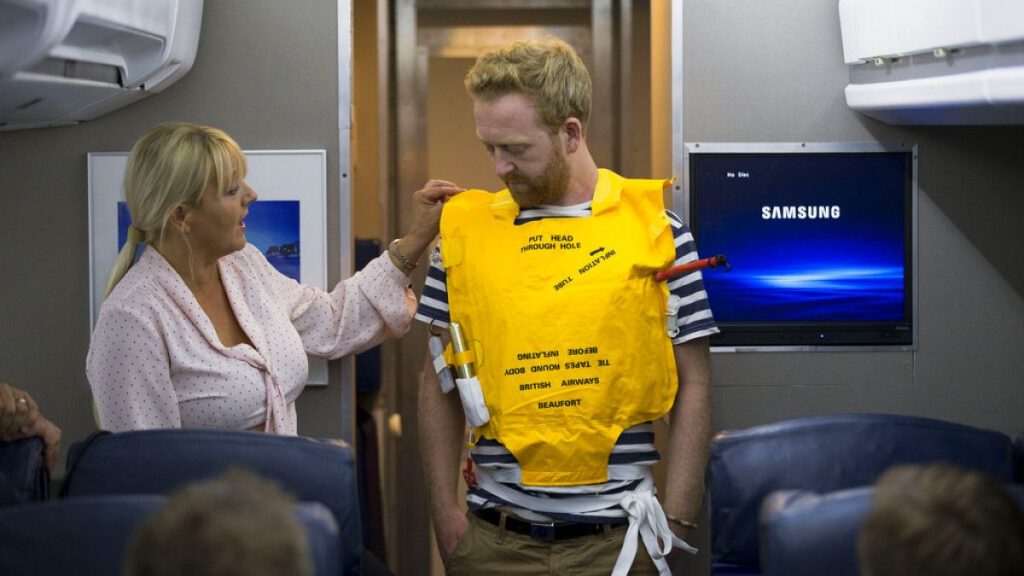The recent air tragedies of 2024, including the Azerbaijan Airlines crash in Kazakhstan and the Jeju Air crash landing in South Korea, have understandably shaken public confidence in air travel. These incidents, coupled with earlier events like the Japan Coast Guard helicopter crash and the Boeing plane incident in Portland, Oregon, contributed to 2024 being the deadliest year for aviation since 2018, with 318 fatalities. However, a broader perspective reveals that flying remains statistically safer than ever. The year 2023 saw zero commercial jet fatalities despite billions of passengers transported globally, and 2024 was on track to match this record until the December incidents.
Statistical analysis reinforces this point. Data from MIT shows a significant decrease in air travel fatality risk, plummeting from 1 in 350,000 passenger boardings between 1968 and 1977 to 1 in 13.7 million boardings between 2018 and 2022. This improvement highlights the ongoing efforts to enhance aviation safety protocols and technologies. Research suggests that human error, particularly pilot error, is a major contributing factor in aviation accidents, accounting for a significantly higher percentage than mechanical failures. Takeoff and landing are identified as the most critical phases of flight, with a higher likelihood of incidents occurring during these periods, as evidenced by the December 2024 crashes.
The Jeju Air crash, attributed to a combination of factors like a bird strike, disabled landing gear, and potential flap malfunction, underscores the complexity of accident investigations. Thorough examination of these contributing factors is crucial to prevent similar incidents in the future. Inspections of Jeju Air’s 737 NG fleet are underway, although preliminary findings don’t suggest a systemic issue with this aircraft type. The Azerbaijan Airlines crash, potentially caused by being struck by Russian air defenses, raises concerns about flying over conflict zones. This echoes the tragic 2014 downing of Malaysia Airlines flight MH17 over Ukraine, highlighting the urgent need for stricter regulations and risk assessments regarding flights over conflict areas.
While organizations like the European Aviation Safety Agency (EASA) issue warnings about conflict zones, they lack the authority to close airspace or mandate avoidance. The onus falls on individual airlines to conduct thorough risk assessments and choose safe routes. While many Western airlines have ceased operations over Russian airspace, several Asian and Middle Eastern carriers continue to fly in the region, highlighting a discrepancy in risk assessment and mitigation strategies. A crucial takeaway from these tragedies is the cyclical nature of safety improvements in aviation. Each accident triggers in-depth investigations that inform future safety protocols. The recovery of the “black boxes” – the Flight Data Recorder (FDR) and Cockpit Voice Recorder (CVR) – is essential for reconstructing the events leading to the crash and understanding the contributing factors.
The investigations, often lengthy and complex, involve gathering evidence, analyzing data, and formulating recommendations to prevent future occurrences. A preliminary report is usually released within weeks, followed by a more comprehensive final report. These reports contribute to a continuous improvement cycle that strengthens aviation safety. Looking back, numerous historical aviation incidents have led to significant safety enhancements. The 1956 Grand Canyon mid-air collision led to improvements in air traffic control, the TWA Flight 800 explosion in 1996 resulted in fuel tank modifications, the 9/11 attacks prompted the creation of the TSA, and the disappearance of MH370 led to real-time aircraft tracking. These examples demonstrate how tragedies drive progress in aviation safety.
Maintaining high aviation safety standards is a collaborative effort. Regulators like EASA work with other international bodies, such as the FAA and ICAO, to ensure global consistency in safety protocols. Manufacturers, airlines, and regulators all play crucial roles in this continuous improvement process. Passengers also contribute to safe travel by adhering to safety regulations and reporting any concerns. While the recent accidents are a sobering reminder of the inherent risks of air travel, the aviation industry’s commitment to investigating incidents and implementing safety enhancements underscores the ongoing pursuit of safer skies. The focus remains on learning from these tragedies to prevent similar occurrences and further improve the safety of air travel for everyone.














